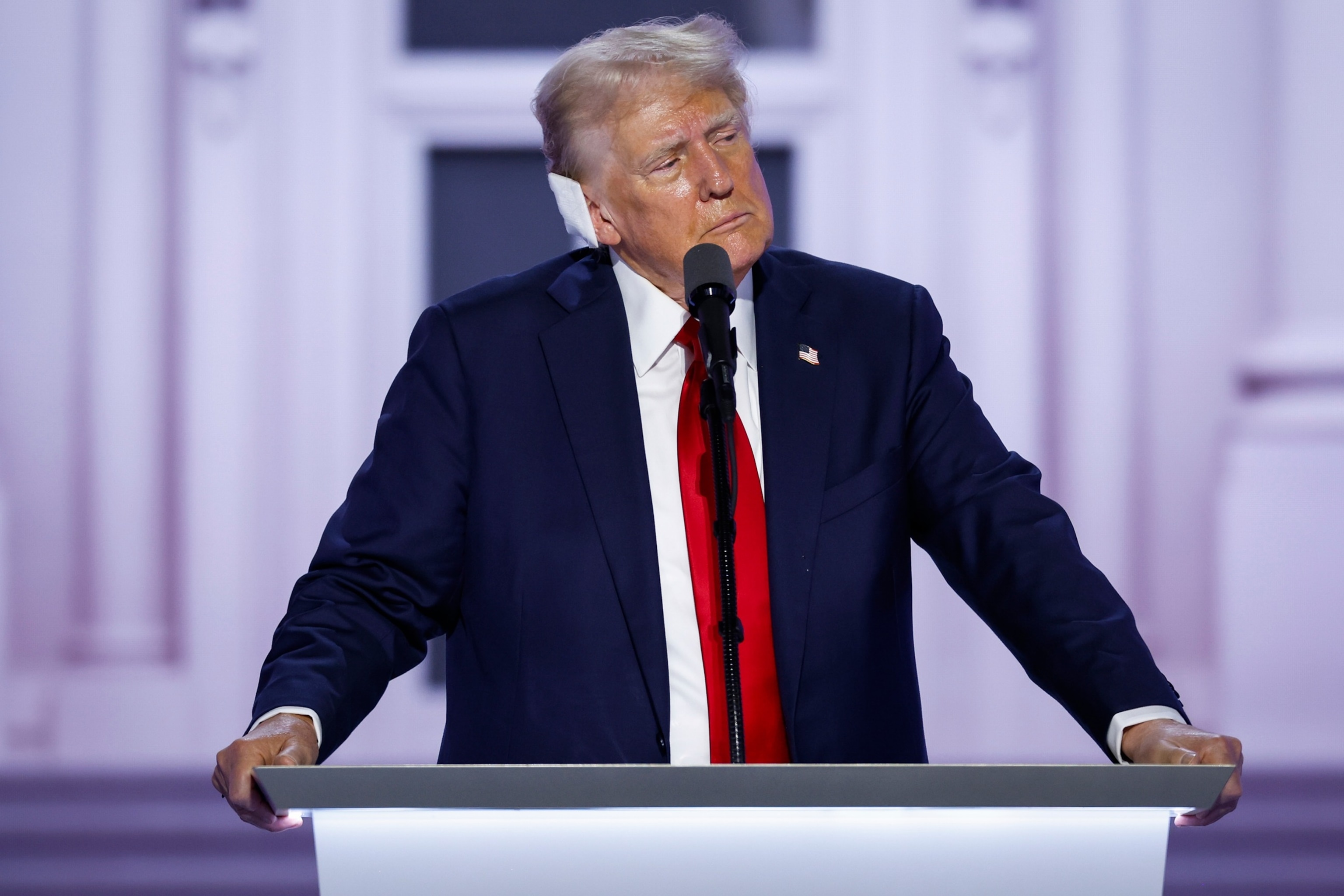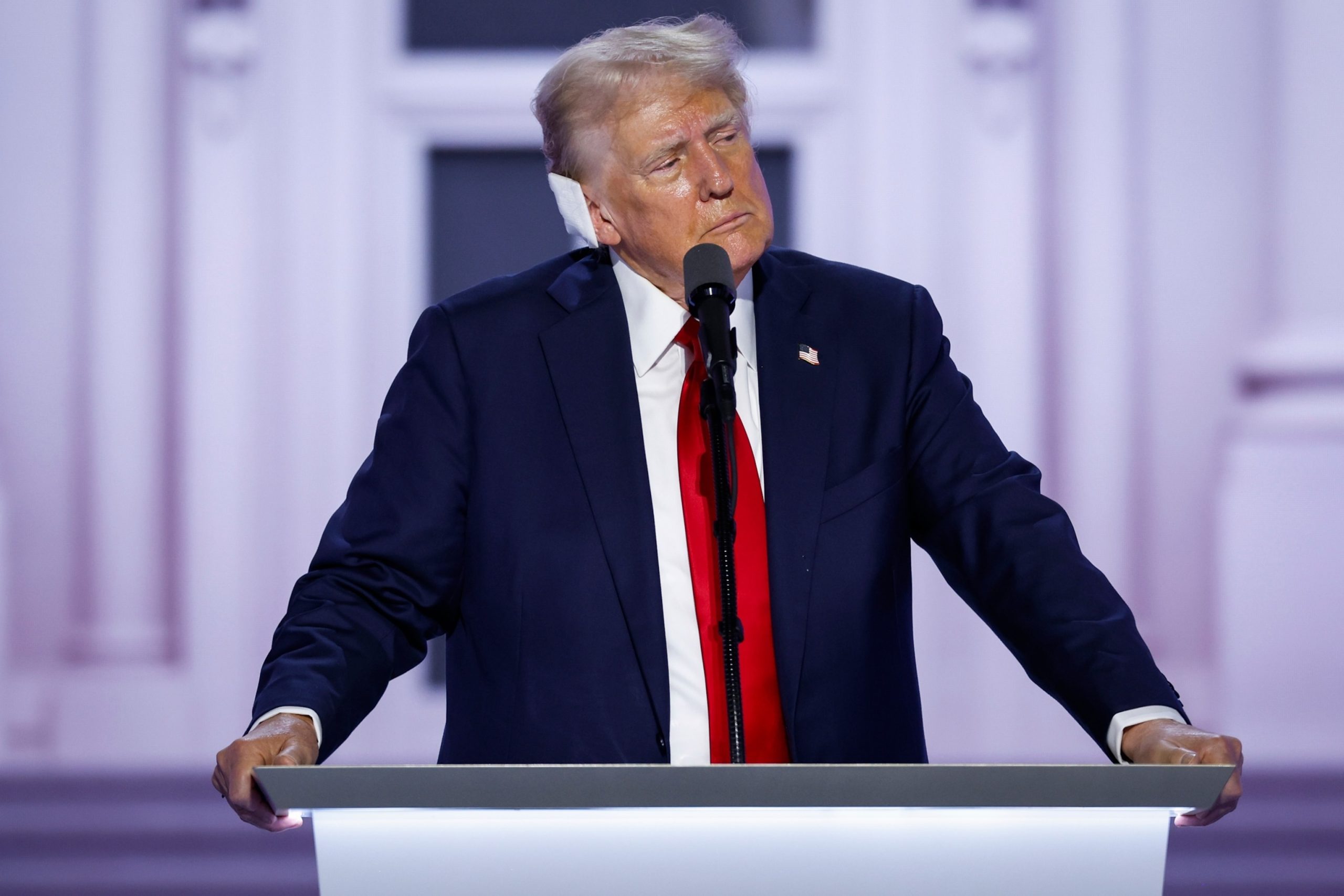This is a KFF Health News story.
No talk of Obamacare. Or abortion.
At the Republican National Convention in Milwaukee this week, where delegates officially nominated Donald Trump as the party’s 2024 presidential candidate, health care issues received little attention from prime-time speakers.
The silence is surprising, given health care makes up the largest chunk of the federal budget, nearly $2 trillion, as well as 17% of U.S. economic output.
It also stands in stark contrast to the GOP’s priorities when it first nominated Trump.
In 2016, the last time Republicans gathered en masse for a presidential convention, repealing the Affordable Care Act was a favorite topic. So was overturning Roe v. Wade and its constitutional protections for abortion.
The change in tone reflects Trump’s political sensitivities. The failed attempt under the former president to repeal Obamacare in 2017 contributed to a crushing GOP defeat in the 2018 congressional elections, and the law now enjoys broad support. Abortion, too, has become a treacherous topic for Republicans since Roe was overturned in 2022, with most Americans opposed to a national ban.
In one of the only pieces of health policy in the GOP’s 2024 platform, the former president vows not to cut Social Security or Medicare, the health program for older and disabled Americans, or change the federal retirement age.
In his speech accepting the nomination Thursday night, Trump promised to protect Medicare and find cures for Alzheimer’s disease and cancer. But he did not outline any health care proposals for a second term. “Democrats are going to destroy Social Security and Medicare,” he said.

Republican presidential nominee, former U.S. President Donald Trump pauses while speaking after officially accepting the Republican presidential nomination on stage at the Republican National Convention, July 18, 2024, in Milwaukee.
Chip Somodevilla/Getty Images
Health care isn’t a winning subject for Republicans, said Charles Coughlin, CEO of a Phoenix public affairs firm who was a longtime GOP political operative before he became an independent in 2017.
Speakers at the convention have instead focused on inflation, crime and immigration. “They have the tried-and-true polling data to show those are winning issues for them, and that’s where they want to keep the narrative focused,” he said.
Immigration has bled into a few health issues, including the U.S. opioid crisis and public insurance coverage. Some Republicans — including Georgia U.S. House Rep. Marjorie Taylor Greene, who addressed the convention on July 15 — have claimed an increase in people crossing the southern border has caused a surge of drug overdoses and deaths.
However, most fentanyl seized at the border with Mexico enters through legal ports of entry, according to the Cato Institute, a libertarian think tank, and most people sentenced in the U.S. for fentanyl trafficking are American citizens, according to the U.S. Sentencing Commission.
Speaking on July 17, U.S. House Rep. Monica De La Cruz of Texas claimed Democratic policies allow people who come into the country without authorization to receive government benefits, even though they are largely not eligible for federal health programs.
De La Cruz also said the Biden administration had cut Medicare Advantage for seniors. While the Biden administration this year modestly cut spending on private plans, the federal government still spends more money per beneficiary on Medicare Advantage than for those in the traditional Medicare program.
The paucity of convention speakers focused on health care reflects the new GOP platform, a document hewing closely to both the substance and tone of Trump’s views. Along with its promise to protect Medicare, the 28-page document vows that Republicans will expand veterans’ health care choices, as well as access to “new Affordable Health care and prescription drug options” more broadly, without elaboration.
On abortion, the party stripped from the platform its decades-old call for federal limits, including instead language suggesting the 14th Amendment prohibits abortion. The platform also says the party supports state-level elections on abortion policy and opposes “Late Term Abortion.” Only about 1% of abortions in the U.S. occur after 21 weeks of pregnancy, according to KFF, a health information nonprofit that includes KFF Health News.
In contrast, the 2016 platform — a 66-page document — also called for shifting open-ended federal Medicaid funding into block grants and introducing a Medicare “premium-support model” to cap spending. It also called for limiting payouts from medical malpractice lawsuits and combating drug abuse.
The word “abortion” appears 32 times in the 2016 platform, compared with once in the 2024 document.
“The GOP is in a headlong sprint away from that issue,” Coughlin said.

Balloons fall after former President Donald Trump accepted his party’s nomination on the last day of the 2024 Republican National Convention, in Milwaukee, Wisconsin, July 18, 2024.
Andrew Caballero-Reynolds/AFP via Getty Images
During the week of the convention, a video of a call between independent presidential candidate Robert F. Kennedy Jr. and Trump appeared online. In the video, Trump is heard sharing disproven claims about childhood vaccines, saying falsely that the shots can cause a baby to “change radically” and dismissing their health benefits.
As a candidate, Kennedy has repeatedly made false claims about the safety and efficacy of vaccines. Trump has long entertained vaccine skeptics. (Before Trump took the oath of office in 2017, Kennedy told reporters Trump had invited him to chair a presidential commission on vaccines, though the commission never materialized.) But as president, Trump ordered the creation of the “Operation Warp Speed” program in 2020 that helped drive the development of COVID-19 vaccines.
Since the start of the pandemic, however, vaccine skepticism has blossomed in the Republican Party. Just 36% of Republicans say they’re confident covid vaccines are safe, and 44% of Republicans and Republican-leaning independents say parents should be able to decide not to vaccinate their children against measles, mumps, and rubella “even if that may create health risks for other children and adults,” according to KFF polling.
The Republican National Convention, held in August 2020, was a highly anticipated event that showcased the party’s platform and highlighted key issues facing the country. However, one topic that seemed to be notably absent from the convention was a focus on health care.
Health care is a critical issue that affects millions of Americans every day. With the ongoing COVID-19 pandemic, access to affordable and quality health care has become even more important. Despite this, the GOP convention did not prioritize discussing health care policy or addressing the current challenges facing the health care system.
One of the main reasons for the lack of focus on health care at the convention may be due to the Trump administration’s efforts to repeal and replace the Affordable Care Act (ACA), also known as Obamacare. President Trump has long promised to dismantle the ACA and replace it with a better health care plan, but so far, no concrete alternative has been presented.
Additionally, the Trump administration’s response to the COVID-19 pandemic has been heavily criticized, with many pointing out the lack of a cohesive national strategy for testing, contact tracing, and vaccine distribution. The pandemic has highlighted the disparities in access to health care and the need for a comprehensive approach to public health.
Despite these pressing issues, the GOP convention largely focused on other topics such as law and order, immigration, and the economy. While these are important issues, health care is a fundamental aspect of people’s lives and should not be overlooked.
Moving forward, it is crucial for policymakers to prioritize health care reform and address the systemic issues that have plagued the health care system for years. This includes expanding access to affordable health insurance, lowering prescription drug prices, and investing in public health infrastructure.
As we approach the upcoming election, voters should consider where each candidate stands on health care and how they plan to address the current challenges facing the system. Health care is a fundamental right that should be accessible to all Americans, and it is essential that our leaders prioritize this issue in their policy agendas.



